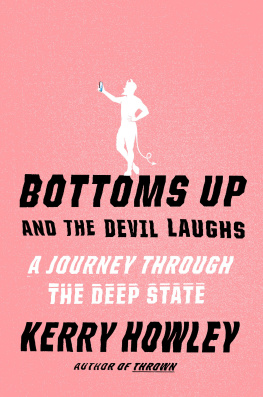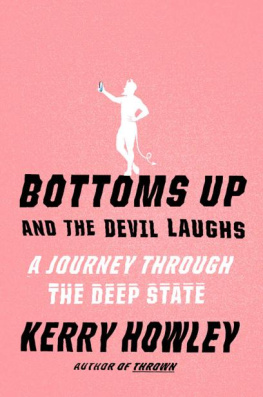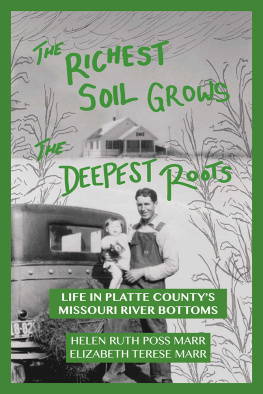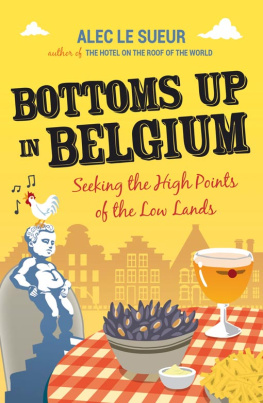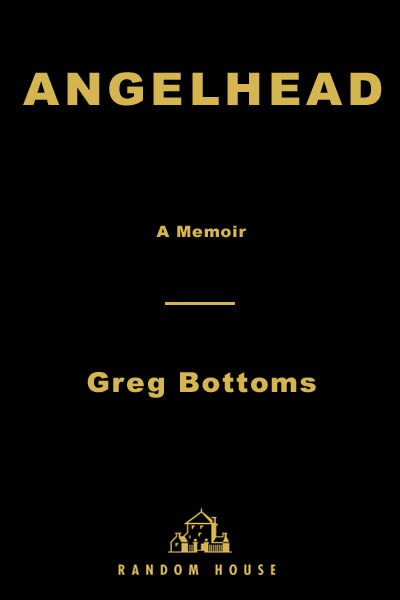
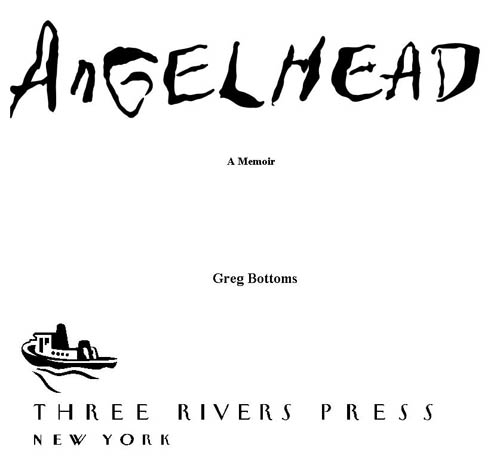
Contents
Authors Note
This is a work of creative nonfiction. It is based upon the factual record of my brothers life, my own memory of the events described herein, and the anecdotes told to me that I am most inclined to believe. The whole, however, is held together by my imagination and is, to borrow a phrase from Michael Ondaatje, a literary portrait or gesture and not a history. In other words, its purposemy purposeis aesthetic as well as informative. My intention has been to capture the experience of schizophrenia. I hasten to add that I am not a mental health professional but quite simply a writer. Many of the names have been changed.
I think that faced with the mystery and passion of life we are forced into a position of humility that is best expressed in the attitudes of prayer.
John Cheever, The Journals of John Cheever
They ought to make it a binding clause that if you find God you get to keep him.
Philip K. Dick, Valis
GOD: A MEMORY
My brother saw the face of God. You never recover from a trauma like that. He was fourteen, on LSD, shouting for help in the darkness of his room in our new suburban home. I was ten. I stood watching from his doorway, still, eyes cinched up tight as seams, trying to make out his writhing shape. I saw for myself. I didnt see God, of course, but I saw my brother seeing God; I saw how petrified he was, how convinced. I knew, still know, that he saw, in some form, His or Her or Its face. It was in the window, a part of the night, shimmering over our neighborhood of new construction sitesclear plastic stapled to boards and waving in the night breeze, tire-tracked mud, portable toilets.
God in the lives of men is nothing new. Its a story that unfurls backward through the history of thought, meaning, reason. Ive spent a lot of time tracing it, reading it over and over, in a hundred different ways. Characters change. Theres a new setting, a twist in this plot that wasnt in that one. But it is an old, old story, as old as Story itself, and perhaps its beginning.
I compare my brother with other narratives involving God. God is the common language between us. Thats how I place Michael, make sense of him, reimagine himalongside saints and martyrs, lunatics and heretics, those who have fallen, shaken and supplicant, pleading, palms aimed heavenward, at the thought of God, His voice, the sweet, terrible whisper in their ear.
Jesus. Abraham, Jacob, Paul. Mark, Luke, Matthew, John. Joan of Arc, Hildegard of Bingen, John Brown. Charles Manson, Jim Jones, David Koresh.
Blake saw angels in trees. Thoreau imagined the possibility of divinity, the sublime, in a knot-hole. Whitman saw God in the salivating mouth of a soldiers bullet hole. Mother Teresa knew the force of God lived even in the fecal rivers of Asian cities, the venereal fever of a beaten whore. I used to watch a man who lived on the streets of Richmond, Virginia, who spent hours shouting Jesus while in paroxysms, drooling, his fly open. But they didnt see Him. None of them. Not like my brother.
That night I couldnt move. The feeling of immobility, of being trapped, sticks in my mind. I stood in his doorway, a nightlight golden behind me, wearing pajamas, fat-faced and freckled, looking at my brother while he screamed, all open mouth and high-pitched wail. His face was contorted like a snake handlers, like a strychnine drinkers in the documentaries I would watch years later, late at night, with a VCR remote in my hand, slow-motioning the physical tics of madness.
I squinted into the darkness. Maybe, at ten, with my eyes barely open, I saw the future. Maybe I saw, in the dark of the room, heard in the screams, that one day soon he would be living on the streets, hungry; that he would be diagnosed as an acute paranoid schizophrenic; that he would leap from a van going forty-five miles per hour to avoid institutionalization; that he would frighten women, children, neighbors, us; that he would be raped; that he would admit to a murder he didnt commit; that his face would be on the front page of local newspapers, the killer; that he would attempt suicide for the first time by drinking Drano, the second time by hanging himself; that he would dismantle the fire alarms in my parents home and set it on fire, ultimately ending up in the psychiatric ward of a Virginia maximum-security prison, praying and crying, by then all but dead to me, locked away in a place I would never visit, a brotherthe same curve of flesh, angle of jaw, color of eyeswho had become a few cryptic Hallmark cards filled with biblical quotes.
I go over and over this. My memory is a scratched record. There I am, watching, cautious, afraid of him, afraid to step into the room because of his early propensity for petty cruelties: charley horses and wedgies, dirt clods and airplane spins, skinned knees and bloody lips and mean laughter. The stuff of early childhood, of brothersbut from him, different, darker, done with an eerie pleasure.
He ripped a poster from his wall, knocked over a red lava lamp, the only source of light within the room, spreading glass, a viscous gel.
My father built this house in the suburbs, most of it by himself. He could still barely afford it, had to sign half his life away to a bank. But we were away from blacks and crime and bad neighbors and people as poor as we were. We were pretending, for the sake of appearances, that we had money, though the old, rusty Rambler in our driveway must have given us away. Our pretending was in the scent of new wood, the chemical stench of fresh, shaggy carpets; it was in the long blades of light falling through our new windows from the streetlight outside, in my brothers screams.
It seemed plausible to me then that God could be in our window. I sometimes felt a cool tingle, like the breath of an invisible congregant, during the hymns at church. Electricity surged through me during sermonsthe stained glass, the pastors booming voice, the organ notes in my stomach and testicles. It was wonderful and frightening, the best and worst feeling. Ive spent my life, starting from this moment in my brothers room, at once doubting and believing, fearing and embracing Godor at the very least the thought of God in me, the possibility of God, as George Steiner wrote, in some future tense made more of love than of hate. So I'm an atheist and a true believer. I value reason and hope for transcendence. I value the four strange, repetitive Gospels as much as any books Ive read, but I cant imagine attending a church now, listening to simple aphorisms and affirmations, having become acutely suspect of all proclamations.
But I believed God was there for Michael that night, hovering in the window. I dont mean a hallucination; I'm not speaking figuratively; I mean that what was in the window that night for Michael was as real as the skin on his face. He'd stepped outside of our tenuous collective reality and into alternate space, a space where God was a shape, a newly decipherable language.
He had been at an Ozzy Osbourne concert at The Coliseum. It was 1980. He'd dropped six hits of acid. In his room he was having his first of many psychotic breaks. It came in the form of crippling guilt, ruthless introspection. He was Jesus being scolded by an angry Father. He wore sin, all sin, as heavy as lead shackles. God made him look at himself, and he was a stone with a minuscule heart.
He flailed. He cut his feet on the glass from the lava lamp. He turned and pleaded to and then punched a neon, glowing blacklight poster of Bruce Lee. God was torturing him with the things he had inside himself, with his own feelings and memories. His thoughts were razor-sharp. He started breaking everything he touched: piggybank in the shape of a football, spreading coins across the floor; his stereo case; a picture frame containing a family picture, each of us smiling under a blue sky against a blue blue ocean.
Next page

